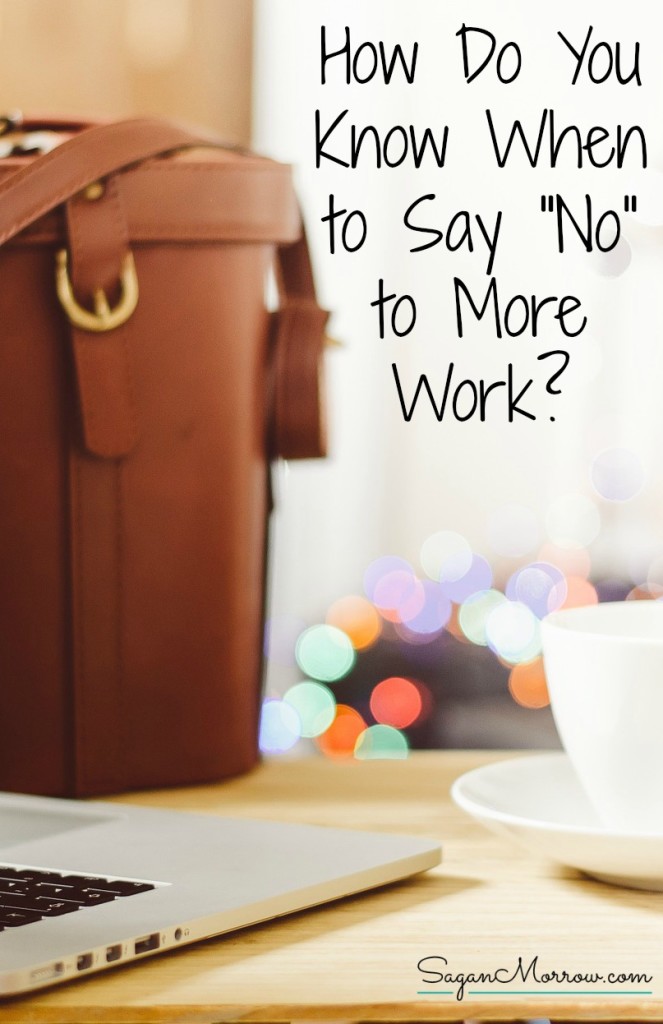This is SUCH a tough question. When you own your own business or you’re a freelancer, it can be challenging to assess when you’ve taken on too much work, and when you can still add more to your workload. 
Here are some questions you should ask yourself if you’re hesitant about whether or not you should turn down a project:
- What’s your financial situation like? Can you afford to say “no” at this point? What if another client backs out at the last minute? In your first six months to a year of freelancing, saying “no” isn’t necessarily the best idea, because so often the income just isn’t steady.
- How are you feeling? Does the idea of more work excite you or are you feeling burned out and exhausted? If your energy and productivity levels are low and you aren’t going to be able to do a high-quality job, say no! There’s no point in taking on extra work if you can’t do it properly.
- Are you interested in this job? If this work is something you LOVE to do and you are super excited about the project, then try to make room for it! Part of the reason for freelancing is to be able to do what you love. However, if you aren’t at all interested in the work, then you need to ask yourself the next question…
- Is this job worth it? It’s okay to raise your fees if it looks like it’s going to be complicated or if the client is particularly difficult. Really consider your value as a worker, and whether the job is worth it if it’s something you don’t enjoy doing. Also think about whether this job is a good fit for your personal philosophies—and if the job or the client doesn’t match your values, are you okay with that? This is something only you know the answer to.
- What are the consequences of turning this job down? This is a very serious question you need to ask yourself. Saying “no” means there is a very real possibility that the client will go to someone else instead and never offer you work ever again. Can you afford that?
- What will saying “no” enable you to do? Will it allow you to take on other, more interesting jobs? Will it give you the opportunity for much-needed rest?
Being a business owner means making tough choices and assessing what gets priority—and what doesn’t. Saying “yes” or “no” shouldn’t be something you do lightly! Figure out what’s best for you, right now, and move forward from there.
Get great tips on being a freelancer and managing your workload with The Business of Writing & Editing: Practical Tips & Templates for New Freelancers.
Have you run into this problem of whether or not you should turn down a project? Do you have questions about this type of issue that can come up for freelancers? Share in the comments section below!
Let’s stay connected: Facebook | Twitter | Instagram | Pinterest | Newsletter
Did you like this article? Share it with your friends!
This is good! Saying no to contracts is surprisingly difficult. We have to trust that our ability to create more opportunities is as good as our ability to complete the ones on offer.
So true.